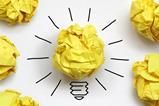A study investigating students’ self-assessed understanding has implications for your practice

The ability of students to accurately self-assess their understanding of a topic is very important. This ability is very helpful, for example, when deciding what topic to focus on during study time or how long to spend studying each topic.
Unfortunately, it is well known that many students, particularly those who are lower performing, often poorly estimate their own understanding. Consequently, these inaccuracies in confidence can negatively affect a student’s performance.
The idea that lower performers tend to overestimate their ability, whereas higher performers tend to underestimate, is the premise of the often-talked-about cognitive bias theory, the Dunning–Kruger effect.
Getting a good understanding
In a new study, researchers in the US sought to determine the factors that most greatly affect students’ self-assessments of their understanding in a chemistry classroom. The participants were 407 undergraduate students enrolled in an introductory general chemistry course.
This comprehensive study involved students self-assessing their understanding before and after a range of different classroom tasks. The results showed that the more poorly a student performed on a task, the more likely they were to lower their self-assessed understanding after that activity.
The difficulty of the task was found to have a significant effect: students were found to be more likely to lower their self-assessed understanding after a more difficult task, and raise it following an easier task. This trend continued and was independent of a student’s actual performance on a task.
How students thought they compared to their peers was also found to have a significant effect. Students who reported their understanding to be lower than their peers lowered their self-assessed understanding rating. However, the actual difference in understanding, rather than the perceived difference, was not found to be significant.
Additionally, neither gender nor provision of feedback were found to have a significant effect on changes in students’ self-assessed understanding.
Teaching tips
This study investigated how various factors can affect students’ self-assessed understanding as a result of participation in classroom activities. There are a number of points worth considering regarding how this study may affect your practice:
- The results strongly suggest that the decisions we make about which classroom activities to use in our teaching can differentially impact the accuracy of our students’ confidence in their understanding.
- We should think carefully about the difficulty of the tasks we set and students’ perceived difference in understanding relative to their classmates, although the latter is very challenging to measure.
- The study also revealed that students who are overconfident in their understanding more easily correct their self-assessment of their abilities due to a poor performance in an activity relative to the positive performance of underconfident students. This may give some indication as to where our efforts should be focused within a class.
- Of particular interest is the lack of impact that feedback has on helping to correct students’ self-assessments of their understanding. It would be reasonable to expect that the more feedback we give, the more accurate the students’ self-assessments would be. However, it would appear that, although students’ self-assessments are not wholly accurate initially, they have enough awareness of their performance in simply engaging in a task to correct their self-assessment. This may suggest that more practice questions, rather than more feedback, is beneficial overall.
References
J Tashiro et al., Chem. Educ. Res. Pract., 2021, 22, 662-682, DOI: 10.1039/D0RP00255K














No comments yet